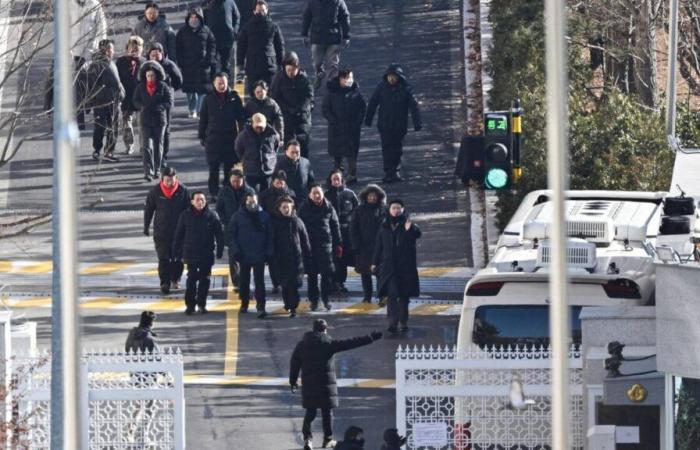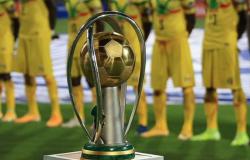A great first in the history of South Korea
“I have decided to respond to the Corruption Investigation Bureau,” Yoon Suk-yeol announced in a video message, adding that he does not recognize the legality of the investigation but submits to it “ to avoid any unfortunate bloodshed” while the police invaded his residence in the morning. “The arrest of Yoon Suk-yeol is the first step towards the return of constitutional order, democracy and the rule of law,” said Park Chan-dae, head of the Democratic Party MPs in Parliament. during a training meeting.
Never before has a sitting head of state been arrested in South Korea. Yoon Suk-yeol may be held in custody for 48 hours under the current warrant. Investigators will have to request a new one to possibly extend his detention. Yoon Suk-yeol risks his post and is under investigation for “rebellion” for having briefly introduced martial law on December 3, a shock measure reminiscent of the dark hours of the military dictatorship, which he had justified by his desire to protect the country from “North Korean communist forces” and to “eliminate elements hostile to the State”.
In a Parliament surrounded by soldiers, the deputies had foiled his plans by voting on a text demanding the lifting of this state of exception. Put under pressure by elected officials, thousands of pro-democracy demonstrators and constrained by the Constitution, Yoon Suk-yeol had to comply.
The trial will continue with or without the presence of Yoon Suk-yeol
On January 3, the Presidential Security Service (PSS), responsible for protecting heads of state, blocked a first attempt by the IOC to execute the arrest warrant issued to force the leader to answer its questions. For their second raid, the authorities warned that they would apprehend anyone who obstructed them.
Teams from the IOC and the police had to climb over the surrounding wall using ladders before getting past vehicle blockades. As they advanced toward the front door of the presidential home, police arrested the PSS interim leader, Yonhap reported. Thousands of unconditional supporters are massed in front of the residence.
Very unpopular, Yoon Suk-yeol was suspended on December 14 following the adoption by the National Assembly of an impeachment motion. On Tuesday, the Constitutional Court formally launched the impeachment trial of the conservative leader, with a very short first hearing. Yoon Suk-yeol did not show up, citing “concerns” about security. The trial will continue even without him, with a second hearing scheduled for Thursday.
The court has until mid-June to decide the future of Yoon Suk-yeol, still officially the president pending the verdict. The court may either permanently dismiss him or reinstate him in his functions.






